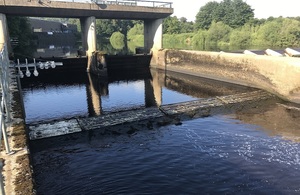Liz Truss appoints New Trade Commissioners to boost UK trade
Press release
International Trade Secretary, Liz Truss, has named two new HM Trade Commissioners (HMTCs).

Two new Her Majesty’s Trade Commissioners (HMTCs) have today been appointed by International Trade Secretary Liz Truss, to play a crucial role in attracting inward investment and helping British businesses seize export opportunities throughout Europe and Central Asia.
Working closely with the wider diplomatic network and other UK Government colleagues in their region, the new HMTCs will lead on a coordinated government effort overseas to promote UK trade, delivering jobs and prosperity for the UK economy.
Chris Barton, previously Acting Director General of Trade Negotiations at DIT, has been appointed as HMTC for Europe. Deputy HMTC for Europe, Kenan Poleo, becomes HMTC for Eastern Europe and Central Asia Network (EECAN).
International Trade Secretary, Liz Truss said:
As an independent trading nation, our relationships with our closest trading partner Europe and with Central Asia remain extremely important. We are working hard to promote Britain as a top investment destination – particularly in future-facing industries like science, tech and the green economy – and help British exporters access new markets.
I’m delighted to welcome Chris and Kenan as Her Majesty’s Trade Commissioners. They bring proven expertise and a wealth of knowledge to help British businesses succeed in this new trading landscape and take advantage of new opportunities as we strike trade agreements.
Kenan Poleo, HM Trade Commissioner for EECAN, said:
I am honoured to be appointed Her Majesty’s Trade Commissioner for Eastern Europe and Central Asia. Countries across this dynamic region continue to diversify their economies into areas where the UK excels, such as technology and clean growth.
My key priority will be to support British businesses in realising the opportunities this diversification provides through dialogue and collaboration around market access, innovation and the key global challenges we share.
With GDP per capita across the region set to maintain its upward trajectory for the foreseeable future, my teams are primed to guide businesses on how to strengthen their investment and export horizons into these exciting, growing markets.
Chris Barton, HM Trade Commissioner for Europe, said:
I am delighted to be appointed as Her Majesty’s Trade Commissioner for Europe. Europe accounts for half of UK exports and is our largest source of inward investment. Ratification of the UK-EU Trade and Cooperation Agreement, alongside new FTAs with other European countries, provides a strong basis for further opportunities.
It is my job to build on these firm foundations, encouraging trade and investment between the UK and other European countries by reducing barriers to UK trade in Europe, helping UK businesses to export to Europe, attracting inward investment from Europe, and championing the rules-based international trading system with Europe.
I look forward to working with colleagues, friends and partners across Europe in delivering this exciting agenda.
Published 1 September 2021
